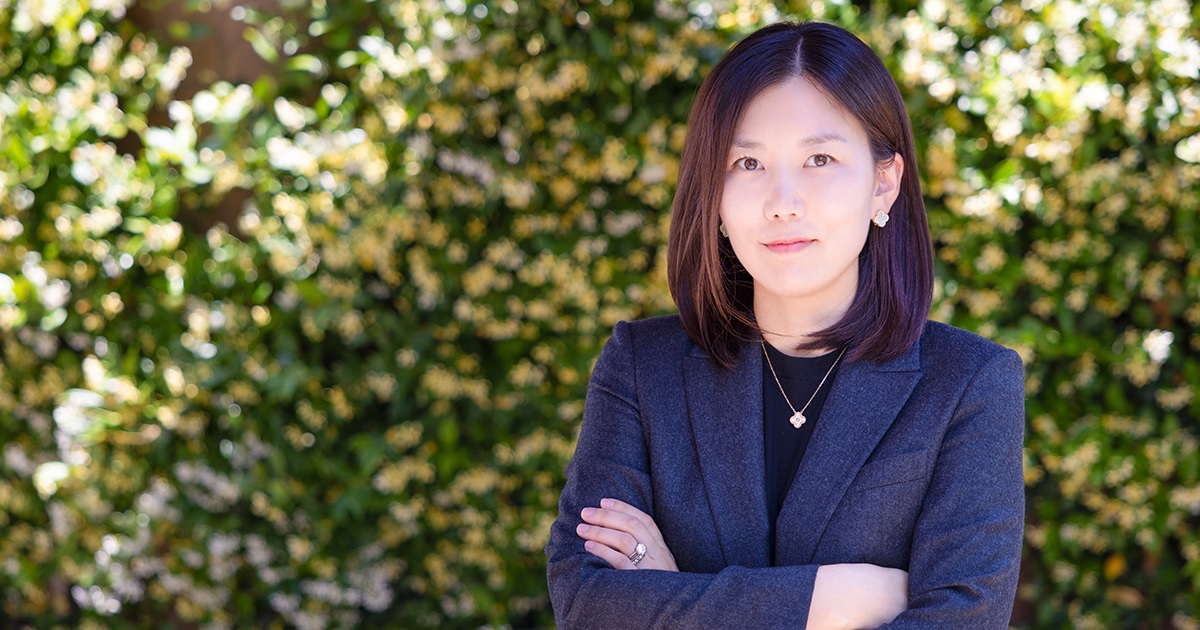
Discover how UC Irvine pioneers AI integration in nursing, enhancing care quality, and outcomes. Dr. Jung In Park’s groundbreaking research leverages AI and vast datasets to predict patient outcomes accurately. Through tailored AI models, nurses gain deeper insights into individualized care, especially for underrepresented populations. This innovative approach ensures a data-driven, personalized healthcare model, improving patient satisfaction and reducing disparities. Embrace the future of nursing with UC Irvine’s commitment to excellence and innovation in AI-driven patient care.
Embark on a journey of transformation as UC Irvine revolutionizes nursing care through cutting-edge AI technologies. Led by Dr. Jung In Park, our research endeavors at the Sue & Bill Gross School of Nursing are reshaping healthcare paradigms. By harnessing the power of AI and extensive datasets, we empower nurses to make informed decisions and deliver superior care. Join us as we explore the intersection of technology and compassion, driving positive change in patient outcomes and healthcare equity.
Trained on Vast Datasets, Machine Learning Applications Transform Patient Care
At the University of California Irvine Sue & Bill Gross School of Nursing, faculty researchers are pioneering innovative ways to utilize artificial intelligence (AI) to enhance patient care quality and outcomes.
Dr. Jung In Park: Leading the Charge in Nursing AI Research
Dr. Jung In Park, an associate professor at UC Irvine, is at the forefront of this endeavor. Her biomedical research focuses on leveraging large datasets and machine learning to provide scientific evidence for predicting patient outcomes.
Dr. Park’s research involves utilizing national cancer registries, electronic health records, and wearable sensor data to predict hospital-acquired infections, 30-day readmission rates, and survival rates.
We spoke with Dr. Park to delve into how she is revolutionizing nursing practice by introducing new applications of machine learning for predicting patient outcomes. This includes developing race-specific survival models and analyzing outcome rates for breast cancer patients.
Q&A with Dr. Jung In Park: Revolutionizing Nursing Practice with AI
Q. How are you preparing the next generation of nurses through your biomedical research using large datasets and machine learning?
A. In the rapidly evolving landscape of healthcare, the integration of large datasets and machine learning into biomedical research is essential for preparing the next generation of nurses. This approach transcends the mere adoption of new technologies; it represents a comprehensive shift toward a data-driven, predictive model of patient care.
By weaving data science and AI into nursing curricula, educational institutions ensure future nurses are proficient in traditional patient care and adept at interpreting and applying AI-driven insights. This educational strategy equips nurses with the necessary skills to analyze complex datasets, identify patterns, and leverage these insights in real time to improve patient outcomes.
Such integration empowers nurses to navigate the digital transformation in healthcare effectively, elevating the standard of patient care significantly.
Q. Why did you turn to AI for predicting patient outcomes?
A. The decision to leverage AI for predicting patient outcomes was driven by the need to address the complexities and limitations inherent in traditional healthcare methodologies. The exponential growth in data volume generated by healthcare systems and emerging technologies has been remarkable.
AI emerges as a powerful tool capable of analyzing vast datasets rapidly and accurately, identifying complex patterns and interactions hidden within the data. Its ability to integrate and learn from diverse data types facilitates a deeper understanding of patient health trajectories, enabling personalized predictions and more effective, individualized care.
This shift toward personalized medicine serves as a significant driving factor in embracing AI for predicting patient outcomes.
Q. How did your team develop race-specific survival machine learning models, and what were the outcomes?
A. Our team conducted a study to tailor survival machine learning models specifically for Hispanic and Black women diagnosed with breast cancer. We aimed to ascertain whether these models could outperform a general model trained on data encompassing all races and ethnicities.
Using comprehensive data, we crafted and fine-tuned models for the Hispanic and Black populations. Our analysis indicated that these specially designed models were more effective in predicting survival outcomes for Hispanic and Black women compared to the general model.
This study highlights the transformative potential of race-specific machine learning models in healthcare, offering more personalized and accurate predictions and addressing issues of representation bias.
Q. Describe your work on predicting individual outcome rates of breast cancer patients and their outcomes.
A. Our team employed natural language processing (NLP) algorithms to my patient-reported outcomes of breast cancer treatment from clinical notes within electronic health records (EHRs), with a focus on underrepresented populations.
By developing and evaluating various NLP methodologies, we aimed to identify the most effective algorithm for accurately extracting data on breast cancer treatment outcomes for underrepresented groups. This research holds significant implications for improving personalized and equitable healthcare strategies and shaping health policy.
Overall, our efforts aim to pioneer advancements in healthcare that are both informed and personalized, ensuring that every patient receives care tailored to their specific needs and circumstances.
As we conclude our exploration into the realm of AI-driven nursing care, we’re filled with optimism and hope for the future. UC Irvine’s commitment to innovation and excellence paves the way for a healthcare landscape where every patient receives personalized, high-quality care. Through the pioneering work of Dr. Jung In Park and her team, we envision a world where nurses are empowered with AI tools to navigate complexities and disparities in healthcare effectively. Together, let’s continue to inspire and uplift the next generation of nurses, forging a path toward a brighter, healthier tomorrow.

